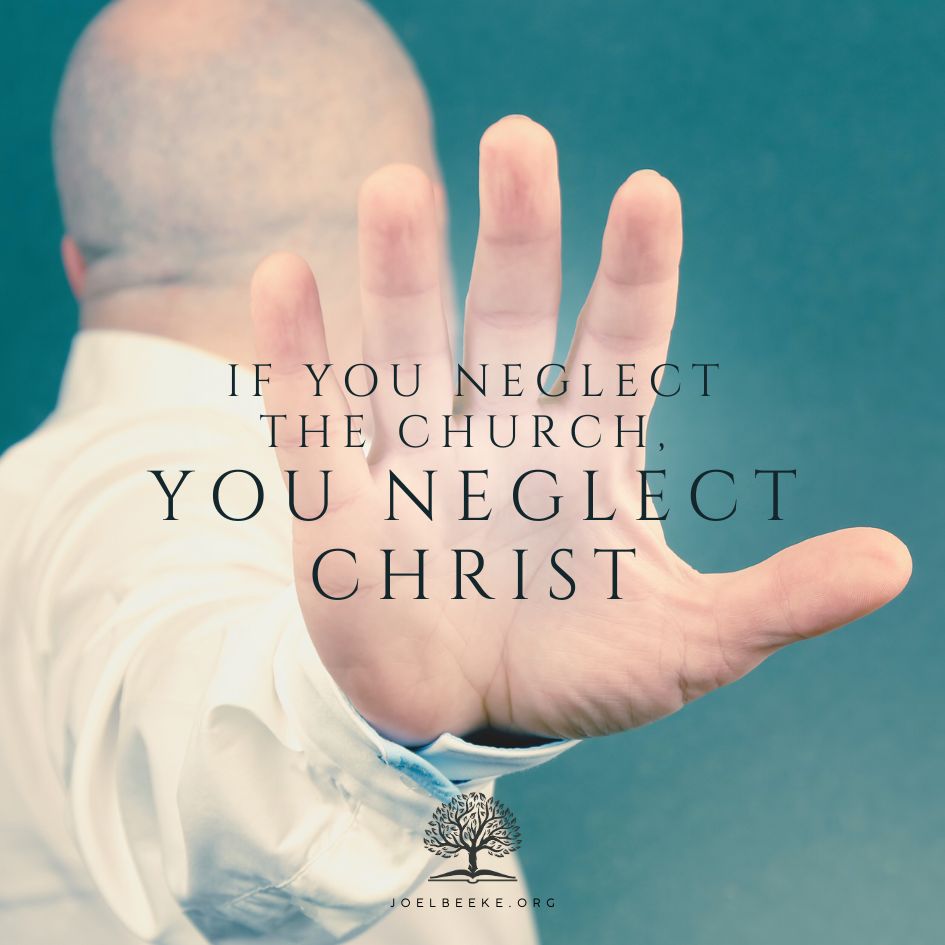
Paul did not write Romans 1 in order to proudly judge homosexuality, or to cast those practicing it or struggling against it into despair, but as part of a larger diagnosis of mankind’s need for the gospel of Jesus Christ (Rom. 1:16–17; 3:21–26). The most shocking news of the epistle to the Romans is that God loves sinners, both immoral pagans (Rom. 1:18–32) and selfrighteous religious hypocrites (Rom. 2), and sent Christ to die for His enemies in order to rescue and reconcile them.
Paul’s message of law and gospel for people who have given themselves over to same-sex erotic desires and practices comes through most clearly in 1 Corinthians 6:9–11, where he wrote, “Know ye not that the unrighteous shall not inherit the kingdom of God? Be not deceived: neither fornicators, nor idolaters, nor adulterers, nor effeminate, nor abusers of themselves with mankind, nor thieves, nor covetous, nor drunkards, nor revilers, nor extortioners, shall inherit the kingdom of God. And such were some of you: but ye are washed, but ye are sanctified, but ye are justified in the name of the Lord Jesus, and by the Spirit of our God.”
Paul reiterated the law of God that homosexuality is sin. The phrase “abusers of themselves with mankind” translates the same Greek word seen before in 1 Timothy 1:10, which means “men who go to bed with males.”1Greek ἀρσενοκοίτης. Here again the word echoes the laws of Leviticus in its condemnation of all sexual activity between men, a connection strengthened by the fact that Paul had just written strongly against incest, another sexual sin condemned in Leviticus 18 and 20.2David E. Garland, 1 Corinthians, Baker Exegetical Commentary on the New Testament (Grand Rapids: Baker Academic, 2003), 212–13. The word translated “effeminate” literally means “soft,” here “men who are soft.”3Greek μαλακός; see Matt. 11:8; Luke 7:25. Immediately preceding “men who go to bed with males,” it refers to men who seek to attract and please homosexual aggressors.4Gordon D. Fee, The First Epistle to the Corinthians, The New International Commentary on the New Testament (Grand Rapids: Eerdmans, 1987), 243–44.
These two words encompass the full range of male homosexual behavior, and rebuke it as sin incompatible with Christianity. We cannot assume that Paul only condemned the abuse of teenage boys or slaves because he was ignorant of homosexual relationships involving more equality or affection; the apostle’s life and ministry in cities steeped in Greco-Roman culture would have acquainted him with the wide variety of male-to-male sexual relationships practiced in the ancient world.5“Paul witnessed around him both abusive relationships of power or money and examples of ‘genuine love’ between males…. Wolff carefully shows that Paul’s situation in cosmopolitan pluralistic cultures made him aware of what are not simply ‘modern’ shades of distinction.” Thiselton, First Epistle to the Corinthians, 452. He did not specify man-boy relationships; his language is broad enough to include all kinds of male homosexual activity as unrighteous. Mohler writes, “Biblical Christianity can neither endorse same-sex marriage nor accept the claim that a believer can be obedient to Christ and remain or persist in same-sex behaviors.”6Mohler, “God, the Gospel and the Gay Challenge,” 22.
Such men who do not repent of their sin will not “inherit the kingdom of God.” In the teaching of Jesus Christ, the only alternative to inheriting the kingdom is being cast into the fires of hell for eternal punishment.7Matt. 25:34, 41, 46; cf. Rev. 21:7–8. We dare not focus this warning entirely upon people who practice homosexual sins and ignore the many sins which, if habitual displays of the heart’s character, will damn sinners to hell. On the other hand, we cannot fail to warn people who participate in same-sex erotic activity that they must repent of such desires and acts if they would live forever in God’s kingdom. To pronounce God’s blessing on the union of two men or two women is to endanger their souls. DeYoung says, “Solemnizing same-sex sexual behavior —like supporting any form of sexual immorality—runs the risk of leading people to hell.”8DeYoung, What Does the Bible Really Teach about Homosexuality?, 77.
However, here we also see the gospel of God’s power and righteousness in Jesus Christ. Paul did not write that if we ever commit such sins then we are surely damned, but he said, “And such were some of you.” Some Corinthian believers had lived as such sinners, but the past tense indicates that they are no longer unrighteous—no longer adulterers, men who sleep with men, thieves, or drunkards.9The Greek tense is imperfect, implying a condition that continued in the past, or actions repeated in the past. Their fundamental identity has changed because they are “in Christ Jesus” (1 Cor. 1:2). Union with Christ now defines them, and they cannot be the same.10“Their identities had been forever changed in Jesus Christ such that they were not now to be known by those same-sex identities any more than the sober man or the former thief would be known as a drunkard or thief.” RPCNA, Gospel and Sexual Orientation, 47.
This change did not arise from themselves, but by the work of God through Christ by the Holy Spirit. Paul described it in three words: washed, sanctified, and justified.11It is possible that the three words reflect the promises of Ezekiel 36: cleansing with clean water from filth and idols (v. 25), a new heart and the indwelling Spirit (vv. 26–27), and the blessing of the covenant relationship (v. 28).
- Spiritual washing, pictured outwardly in the waters of baptism (Acts 22:16), is the Spirit’s cleansing of the filth that dominated the sinner’s soul, a personal application of the death of Christ in regeneration (Eph. 5:25–26; Titus 3:3–6; Rev. 1:5).
- Sanctification in this case refers not to the process of Christian growth but a definite work at conversion. It is the work of the Spirit to set apart the person as holy unto God, so that he is now a saint of God (1 Cor. 1:2; 2 Cor. 1:1).
- Justification is not a change in the person’s soul, but in his legal status, so that God counts him as righteous by faith alone because Christ died for his sins and rose again as his living righteousness (Rom. 3:21–26; 4:25; Gal. 2:16; Phil. 3:9).
The good news for those convinced of the sinfulness of homosexual desires and practice is that Christ does change people for His glory. Telling people that Christ can save them from sin is not homophobia. True homophobia is believing that people who practice same-sex sexual relations are so different that they can never turn back to the Lord and His ways.12Butterfield, Secret Thoughts of an Unlikely Convert, 169. Therefore, the homosexual man or woman who repents and trusts in Christ by grace may say, “I once was a person ruled by same-sex desires, but that is not my identity any longer. I am not dirty and defiled, but washed and clean. I am not unholy and profane, but sanctified as a saint of God. I am not guilty and condemned, but justified and vindicated by the perfect obedience of Christ.”
That is not to say that he feels no more homosexual temptations and never sins again, or that he does not need the help of brothers and sisters in Christ and a diligent use of the means of grace to grow. Every Christian experiences an inward battle against remaining sin, a conflict between a heart that loves God’s law and the evil still present in him (Rom. 7:14–23; Gal. 5:17; 1 Peter 2:11). At times this battle makes him cry out to God in sorrow over the sinful desires waging war against his soul.
We recognize that some people may have a personal disposition that makes them more inclined towards homosexuality than other people, just as each person tends towards some sins more than other sins. Jonathan Edwards wrote regarding the new birth,
Indeed allowances must be made for the natural temper: conversion doesn’t entirely root out the natural temper: those sins which a man by his natural constitution was most inclined to before his conversion, he may be most apt to fall into still. But yet conversion will make a great alteration even with respect to these sins. Though grace, while imperfect, doesn’t root out an evil natural temper; yet it is of great power and efficacy with respect to it, to correct it…. If a man before his conversion, was by his natural constitution, especially inclined to lasciviousness, or drunkenness, or maliciousness; converting grace will make a great alteration in him, with respect to these evil dispositions; so that however he may be still most in danger of these sins, yet they shall no longer have dominion over him; nor will they any more be properly his character.13The Works of Jonathan Edwards, Volume 2, Religious Affections, ed. John E. Smith (New Haven: Yale University Press, 1959), 341–42. We are indebted for this reference to RPCNA, The Gospel and Sexual Orientation, 19.
The gospel promise of “such were some of you” means there is no such thing as a gay Christian or a lesbian Christian, any more than there is a Christian adulterer or a Christian drunkard. The Christian is a new creation, for the death and resurrection of Jesus Christ have decisively overcome the guilt and power of sin (Rom. 6:1–14; 2 Cor. 5:17; Eph. 2:1–10). The answer to the conflict is not to try to legitimize sinful desires, but to cling by faith to the promises of Christ and who you are in Him.
Our culture would define us by the direction of our desires (sexual orientation), but only God has the right to define us, and He does so by our created gender (biological sex) and redeemed status in Jesus Christ. This new identity in Christ becomes the basis for new obedience, and must be appropriated daily by trusting in the promises of the gospel. The battle then is to become what you are in Christ: washed, sanctified, and justified.14Fee, First Epistle to the Corinthians, 247.
The battle is fought in the context of a local church that accepts repentant sinners no matter what they once were, and surrounds them with prayer, brotherly love, accountability, and exhortation. Paul did not address this letter to an isolated individual, but to a community of believers, “the church of God which is at Corinth,” whom God had called “unto the fellowship of his Son Jesus Christ our Lord,” fellowship with Christ and fellowship in Christ with each other (1 Cor. 1:2, 9). He reminded them they are organically joined together by Christ’s Spirit like members of the human body, and they need each other (1 Cor. 12:12–22).
Christians need to remember that the identity of those who practice samesex erotic activity is often bound up in a community of like-minded persons because of the acceptance found there.15“Sexual orientation also refers to a person’s sense of identity based on those attractions, related behaviors, and membership in a community of others who share those attractions.” American Psychological Association, Answers…Sexual Orientation and Homosexuality, 1. As one person said, “I’m a gay man because the GLBT (Gay, Lesbian, Bisexual and Transgendered) community is the only safe home I have.”16Quoted in Butterfield, Secret Thoughts of an Unlikely Convert, 50. The church must be willing to welcome friends and visitors who identify themselves as homosexual, bisexual, or transgender. We must show them warmth, respect, and love in order to demonstrate that biblical Christianity is not a club for self-righteous, judgmental hypocrites, but a fellowship of repentant sinners who are growing saints. Church must be safe, not safe for sin, but safe for people who sin.
For those saved from sin, building a new sense of identity in Christ entails building new relationships in the community of Christ. Through wholesome fellowship and godly companionship with people of both genders, new Christians grow in their experiential knowledge of Christ and His ways, meet many of their emotional and social needs, and serve others through the sacrificial use of their gifts.17RPCNA, Gospel and Sexual Orientation, 63–64. If we will love and serve them with patience, we can have the joy of seeing them not only overcome homosexual sins, but grow holistically as persons created and renewed in God’s image.
Excerpt From
One Man and One Woman: Marriage and Same-sex Relations
Joel R. Beeke & Paul M. Smalley







